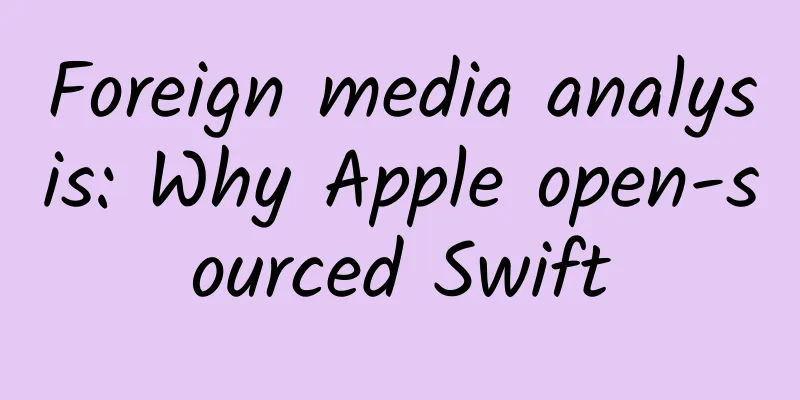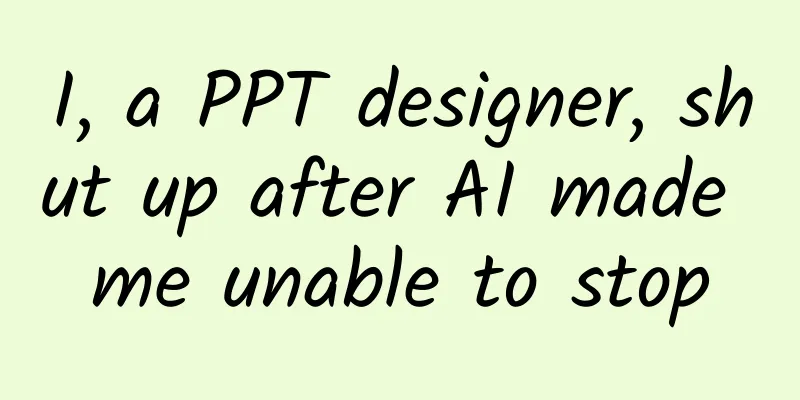Foreign media analysis: Why Apple open-sourced Swift

|
Apple's plans are indeed promising, but their main concern is to ensure that Swift attracts more developer support. At the just-concluded WWDC (Worldwide Developers Conference) 2015 conference, Apple announced that it would transform its first Swift programming language, the successor to Objective-C, into an open source project. The announcement comes alongside Swift 2, which includes even more new features designed to make development faster and easier, and will debut alongside the iOS 9 beta, which is now shipping to registered developers. "We believe Swift should be everywhere and available to everyone," said Craig Federighi, Apple's senior vice president of software engineering, during his keynote at WWDC. However, Federighi did not disclose specific details about how Swift will be transformed into an open source project. It is not clear whether Swift will be managed directly by Apple or led by an independent foundation. If history is any guide, Swift's management as an open source project should follow the same path as WebKit, another recent open source project owned by Apple, with Apple no doubt remaining the primary manager, while outsiders will be able to submit their own changes. The issue of opening up Swift quickly sparked heated debates on both sides. Open source has become the main and even objective way for most developers to participate in technology advancement, so Apple's move to open up its ecosystem is of course very practical - provided that it does not touch the control limit that Apple has always insisted on. (Microsoft has also begun to open its arms to open source.) Swift under the open source mechanism will be easier to port to multiple platforms, and in theory it can follow the same development trajectory as Python or Google Go. However, this situation is unlikely to happen: open source Swift will bring a large number of non-native libraries to iOS applications that are beyond the control of Apple. Obviously, the strict control of the iOS runtime environment is one of the fundamental means for Apple to ensure the end-user experience on its devices, and this restriction will probably exist for a long time on Swift. The real significance of open-sourcing Swift may be to attract external developers to the iOS camp by allowing them to use the language they are familiar with, rather than really allowing iOS applications to accept more external technical solutions in an open manner. |
<<: Xiaomi Content Report Card
>>: Developers' Notes: Hot Topics in Mobile Development in 2015
Recommend
Excessive marketing of Hisense TV may be the main reason for the decline in net profit
2017 was undoubtedly a difficult year for color T...
Toyota and SoftBank join forces to usher in an era of cooperation between water and oil for autonomous driving
The Nikkei reported on November 27 that Toyota Mo...
Is the cold winter of entrepreneurship coming for China's manufacturing industry?
There was almost no good news for the Chinese eco...
iQIYI and Changhong jointly launch a new TV species, LeTV Cast builds new Internet infrastructure
As home appliances continue to become smarter, sm...
How to activate a “professional account” on Xiaohongshu? Here is a guide for you to start
Today, Xiaohongshu adjusted its account system an...
Why do fish have to have spines? Will the fish be pricked by the spines?
Fish is a common dish on the Chinese New Year tab...
International Stuttering Day | Why do I stutter when I’m nervous? ! ! !
In the TV series "The Big Bang Theory",...
Understanding neuromorphic computing: from basic principles to experimental verification
The human brain has long been an inspiration to r...
Attracting new users: 10 common channel classifications and 100 channel summaries for APP promotion
Nowadays, it is becoming more and more difficult ...
Where is Sony's painful road ahead?
As a representative of Japanese companies, Sony w...
User retention during operations and promotions is the biggest growth!
% ignore_pre_1 % In the Corsair Model AARRR of gro...
When programming languages meet superheroes, which one is the real one?
Each programming language has its own unique styl...
Review of JD.com’s Double 11 Operation: How to Carry Out JD.com’s Flagship Marketing Activities
Described from the perspectives of traffic distri...
Detailed explanation: Objective-C Class Ivar Layout
This exploration stems from a question asked by a...
2022 Abel Prize winner Sullivan: A mathematical helmsman who connects different fields
The 2022 Abel Prize was awarded to American mathe...









